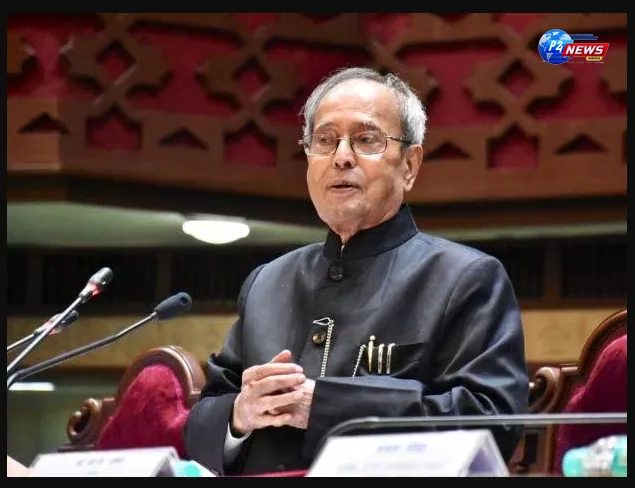Mani Shankar Aiyar attributed the Congress's poor performance in the 2014 Lok Sabha elections to a lack of governance in 2013, highlighting how this deficiency impacted voter sentiment and the party's overall electoral success.
Mani Shankar Aiyar attributed the Congress's poor performance in the 2014 Lok Sabha elections to a lack of governance in 2013, highlighting how this deficiency impacted voter sentiment and the party's overall electoral success.
In a revealing discussion about the political landscape during the UPA-II government, veteran Congress leader Mani Shankar Aiyar suggested that the outcome of the 2014 general elections could have been significantly different if Pranab Mukherjee had been appointed Prime Minister, with Dr. Manmohan Singh serving as President. This assertion comes from Aiyar's latest book, "A Maverick In Politics," where he reflects on pivotal moments from his own political journey and the broader national developments he witnessed.
During an interview with the news agency PTI, Aiyar expressed that the Congress party's poor performance in the 2014 Lok Sabha elections, where it secured merely 44 seats, can be largely traced back to the absence of effective governance in the preceding year. He pointed out that two significant events in 2012—the illness of Sonia Gandhi and Dr. Manmohan Singh undergoing multiple bypass surgeries—rendered the party and government leadership weak and incapacitated.
Aiyar emphasized that amid this turmoil, Pranab Mukherjee stood out as a figure brimming with vitality and innovative ideas. He described Mukherjee as having the charisma and capability to lead either the party or the government effectively. The veteran leader referred to Mukherjee's own autobiography, where the latter expressed his aspirations of being appointed as Prime Minister, while respectfully envisioning Manmohan Singh’s transition to the presidency—a role befitting his long-standing contributions to the nation.
Reflecting on the hypothetical scenario of this leadership shift, Aiyar claimed that while he believed the Congress would still have faced challenges in the 2014 elections, the scale of defeat would not have been as drastic. He proposed that with Mukherjee at the helm and Singh as President, the party would likely have fared better, potentially finishing with around 140 seats rather than the catastrophic dip to just 44.
In his commentary, Aiyar made a poignant comparison, recalling the Congress's peak performance in the 1984 elections, where it won a staggering 414 seats in the wake of Indira Gandhi's assassination. He highlighted how, over the subsequent decades, the party's fortunes waned, culminating in a stark loss of nearly 370 seats by 2014. This decline, he argued, can be attributed to the lack of governance and the party's inability to counter opposition narratives effectively during 2013, while senior leaders were preoccupied with health issues.
Aiyar also noted that many allegations aimed at the Congress party remained unproven in the courts, such as those in the infamous 2G spectrum case involving DMK leaders. He underscored that the government's failure to assertively navigate and respond to political attacks contributed significantly to its vulnerability, further asserting that Pranab Mukherjee’s leadership could have provided the necessary governance to mitigate the damage, even if it would not have fully reversed the party's fortunes.
When questioned about the decision not to appoint Mukherjee as Prime Minister, Aiyar revealed that Mukherjee himself had mentioned hearing rumors of Sonia Gandhi considering this move while recovering in the Kaushambi Hills. However, the reasons for her decision to maintain the existing leadership arrangement remain unclear and are something only she could clarify.
Pranab Mukherjee, a stalwart of the Congress party, was elected as President in 2012 following a distinguished political career spanning four decades. Known for his strategic acumen, he held several crucial cabinet positions, covering Finance, External Affairs, and Defence. His legacy was further cemented with the awarding of the Bharat Ratna in 2019, a year before he passed away during the Covid pandemic. This reflection serves not only as a political analysis but also as a tribute to a leader who commanded respect across the political spectrum.
Like
Dislike
Love
Angry
Sad
Funny
Pray
'Trump Tracker: Tulsi Gabbard's Surprising Appointment as US Intelligence Chief
November 14, 20249th Ayurveda Day in Melbourne: A Celebration of Ayurvedic Innovations and Global Health Impact
November 10, 2024🍪 We Value Your Privacy and Experience Hi there! We use cookies to enhance your browsing experience, provide personalized content, and analyze site traffic. By continuing to use our site, you consent to our use of cookies.







Comments 0